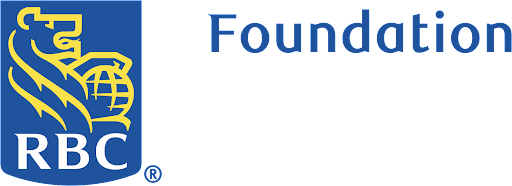Diversity in Corporate Community Investment

From the Mind to the Heart is the first research in Canada to explore the influence of justice, access, inclusion, diversity, equity (JAIDE) within the corporate community investment profession, and the beliefs, culture, and practices that inhibit or enable equity within corporate nonprofit partnerships.
Findings are described in two reports and are drawn from a survey of Canada’s largest companies, interviews with diverse professionals, and discussions with young leaders.
The study conducted by AgentsC Inc. and Imagine Canada, with generous support from the RBC Foundation, describes the state of the corporate community engagement profession while highlighting unique insights and recommendations from Black, Indigenous, 2SLGBTQI, South-Asian, and South-Asian Muslim professionals on how companies can better advance philanthropy in service of JAIDE.
THE REPORTS



Through the diversity of perspectives presented in the study, fundamental gaps and oversights in representation, intentionality, and leadership were uncovered. The study also highlights what companies must do to authentically advance diversity and incorporate the principles of JAIDE into their community investment programs.
Lack of representation and intentionality inhibits equity: Among the key findings, the study shows a lack of representation and influence of Black and Indigenous professionals within the field. Notably, only 25% of Black practitioners reported having funding decision-making responsibility—in contrast to 96% percent of white respondents.
DEI Training is not enough: The research also highlights that diversity training is not enough; there is a lack of demonstrable evidence of JAIDE practices beyond positive sentiment and training. While several companies indicated support for JAIDE-oriented models (such as participatory grantmaking and trust-based philanthropy), few were able to provide clear examples of the steps they have taken to implement alternative approaches.
Low priority within companies: According to the professionals interviewed for this study, corporate community investment is often seen to be of low importance within a company, bringing into question the authenticity of company efforts and marketing. There was also a sentiment that companies are only being spurred into change or action during a crisis.
There's absolutely [DEI] training around….But when it comes specifically to how does this show up when you are doing work with communities, we do not have training specific to that.”
– Study participant, community investment professional

The study describes a number of calls to action for companies, and highlights the importance of centering empathy within community investment strategy. To disrupt the status quo and showcase industry leadership, companies need to thoughtfully incorporate JAIDE principles into strategy and empower teams to tailor their practices to help them achieve authentic progress on their missions and a greater social impact.
Hold a mirror up to your company, department, and personal viewpoints
Being transparent about your company’s role and function, while also demonstrating commitment to JAIDE, would avoid the pitfalls of seeming to be social washing.
Understand and articulate the kind of JAIDE you wish to see
JAIDE means different things to different people. To fully understand what JAIDE means for your organization requires understanding the perspectives of the people most affected by anti-JAIDE practices in your company and among your stakeholders.
Set higher expectations for corporate training in JAIDE
Promote training that is relevant and engaging across the organization, and that is continuously accounted for and assessed in terms of positive actions after training is undertaken.
Expect the same standard from others that you espouse within your own company
Invite your nonprofit partners to engage in dialogue, adopt JAIDE practices, and to join you in this social change movement.
Recognize that diverse communities have been told for many years that change takes time
Have a plan to ensure accountability of JAIDE practices. Whatever the scale of the plan may be, there needs to be clearly defined objectives, desired outcomes, roles, resources, measurements, and timelines.

Advancing equity in corporate social investment, with Olumide Akerewusi. Let's Imagine podcast, 2023
Advancing Equity in the Corporate Social Impact Profession. Association of Corporate Citizenship Professionals, 2022
Diverse Representation in Leadership: A Review of Eight Canadian Cities.
Diversity Leads, 2020. Ted Rogers School of Management’s Diversity Institute
Diversity Disclosure Practices: Diversity and leadership at Canadian public companies. Osler, 2022
Diversity Is Our Strength: Improving Working Conditions in Canadian Nonprofit. Imagine Canada, 2020
Diversity of Charity and Non-Profit Boards. Statistics Canada, 2021
Donor Trust Special Report: Diversity, Equity, and Inclusion. BBB Wise Giving Alliance, 2022
Investigation: After George Floyd was murdered, corporate Canada promised philanthropic support for Black communities. What have they disclosed donating since? Future of Good, 2022
The Equity Benchmarking Project.
A research and knowledge mobilization project on advancing justice, equity, diversity, and inclusion in the nonprofit sector by the Equitable Recovery Collective
Wake Up Call: Navigating New Pathways for Corporate Community Investment in Canada. Imagine Canada, 2020
Acknowledgement
This project was made possible thanks to generous support from our National Partner, RBC Foundation.


A community of corporate leaders who are setting the standard for community investment in Canada.
The Imagine Certification awards a Trustmark to companies that give back at least 1% of pre-tax profits to the communities where their employees live and work.